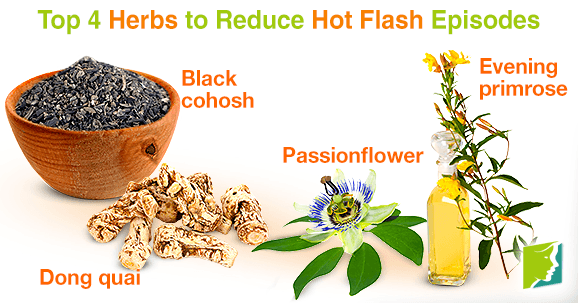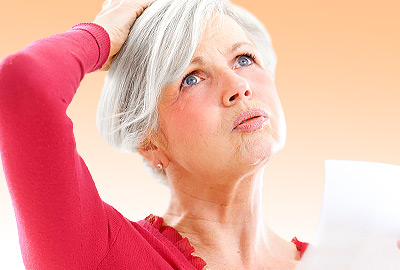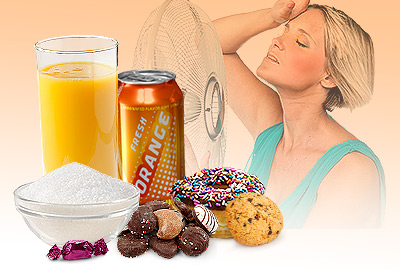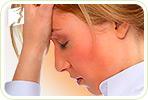Hot flashes are one of the most common symptoms of menopause. Beyond the obvious solutions, like using an ice pack and dressing in light layers, there are several natural remedies that can assist you in cooling down. Herbs have been used for millennia to fight hot flashes and they are still used to this day.
Black Cohosh
Black cohosh, native to North America, has been long used by Native Americans for gynecological purposes. Recent studies show that this herb can in fact relieve hot flash and night sweats by 26%. The success can be attributed to the shrub's high levels of phytoestrogens. The decrease in estrogen during menopause is major cause of hot flashes, so this plant compound helps the restoration of estrogen levels.
Dong Quai
Dong quai, also known as female ginseng, has been used in China, Korea, and Japan since ancient times. It is popularly used during tomes of hormonal imbalance. It is particularly effective during menopause to decrease the frequency of hot flashes. This is because, like black cohosh, it contains phytoestrogens. These compounds regulate hormone levels and blood flow, helping to reduce temperature and redness.
Evening Primrose
The seeds offer an oil extract that can aid in menopausal symptoms. Composed primarily of essential fatty acids, it regulates your estrogen levels and helps calm your body. It is also traditionally known to have a cooling effect, which is another reason it has become a popular method for treating hot flashes.
Passionflower
Anxiety is one of the worst triggers for hot flashes. Not only can anxiety set them off, but it can also increase the severity of episodes as well. The bioactive compounds in passionflower are deeply relaxing, which ultimately cools you down. Researchers believe this is due to the herb's ability to increase gamma-aminobutyric acid (GABA) levels in the brain.
Consuming these herbs, whether in tea or supplemental form, you will most likely experience improvement in the duration, frequency, and severity of your symptoms. If you opt for tea, make sure it is iced, because hot beverages can trigger a flash. Click on the following link to learn more about the various treatments for hot flashes.
Sources
- Office of Dietary Supplements. (2008). Black Cohosh. Retrieved April 29, 2014, from http://ods.od.nih.gov/factsheets/BlackCohosh-HealthProfessional/
- University of Maryland Medical Center. (2011). Black cohosh. Retrieved April 29, 2014, from https://umm.edu/health/medical/altmed/herb/black-cohosh
- University of Maryland Medical Center. (2012). Dong quai. Retrieved April 29, 2014, from http://umm.edu/health/medical/altmed/herb/dong-quai
- University of Maryland Medical Center. (2011). Evening primrose oil. Retrieved April 29, 2014, from https://umm.edu/health/medical/altmed/herb/evening-primrose-oil
- University of Maryland Medical Center. (2011). Passionflower. Retrieved April 29, 2014, from https://umm.edu/health/medical/altmed/herb/passionflower




